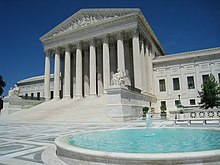The S upreme Court saved some of the year’s most politically explosive decisions for the end of its term. As the next few weeks unfold, the justices will render their rulings on a range of contentious issues, including President Joe Biden’s plan to reduce student debt, a case involving a religious website designer refusing to create pages for same-sex weddings, and the fate of race-based affirmative action in higher education.
upreme Court saved some of the year’s most politically explosive decisions for the end of its term. As the next few weeks unfold, the justices will render their rulings on a range of contentious issues, including President Joe Biden’s plan to reduce student debt, a case involving a religious website designer refusing to create pages for same-sex weddings, and the fate of race-based affirmative action in higher education.
The current composition of the Supreme Court, with its 6-3 conservative majority, has left many legal observers expecting outcomes that align with conservative perspectives. With this court being the most right-leaning in over 90 years, it is anticipated that the justices will vote against affirmative action, undermine President Biden’s student debt plan, and likely side with the religious website designer.
While these decisions may not carry the immediate impact of last year’s Dobbs ruling, which overturned the national right to abortion, they are still poised to stir controversy and provoke strong reactions from voters on both sides of the political spectrum.
Students for Fair Admissions v. University of North Carolina, No. 21-707
Students for Fair Admissions Inc. v. President & Fellows of Harvard College, No. 20-1199
Affirmative action has long been a topic of heated debate in the United States, and the Supreme Court’s decision on this matter is expected to be closely watched. Opponents argue that race-based admissions policies discriminate against qualified individuals and undermine the principle of meritocracy. Proponents, on the other hand, contend that affirmative action is necessary to address historical inequalities and promote diversity in educational institutions.
If the conservative majority does vote against affirmative action, it would mark a significant blow to efforts aimed at rectifying systemic inequities in higher education. The repercussions of such a decision could extend beyond the immediate implications for admissions policies, with potential ripple effects felt throughout the country’s education system.
Biden v. Nebraska, No. 22-506
Department of Education v. Brown, No. 22-535
President Biden’s student debt plan—another contentious issue awaiting the Supreme Court’s ruling—has been a central component of his agenda. The plan seeks to alleviate the burden of student loans for millions of Americans and provide them with much-needed relief. However, opponents argue that such a plan oversteps the boundaries of executive authority and could set a dangerous precedent for future presidents.
With the conservative majority on the court, there is a heightened likelihood that they will find fault with President Biden’s plan and strike it down. This outcome would undoubtedly spark a fierce debate about the balance of power between the executive and judicial branches of government, as well as the role of the courts in shaping national policy.
303 Creative LLC v. Elenis, No. 21-476
In addition to these two contentious cases, the Supreme Court will also decide the fate of a religious website designer who refuses to create pages for same-sex weddings. This case raises complex questions surrounding the intersection of religious freedom and LGBTQ+ rights. The court’s ruling on this matter will have implications not only for the parties involved but also for the broader conversation on religious exemptions and LGBTQ+ rights in the United States.
As these decisions loom, the country finds itself on the precipice of yet another chapter in the ongoing battle over values, rights, and the proper role of the judiciary. The outcomes will undoubtedly be met with intense scrutiny and will fuel further political polarization. Moreover, these rulings are likely to reverberate through the upcoming presidential election, potentially shaping the campaign narratives and mobilizing voters on both ends of the political spectrum.